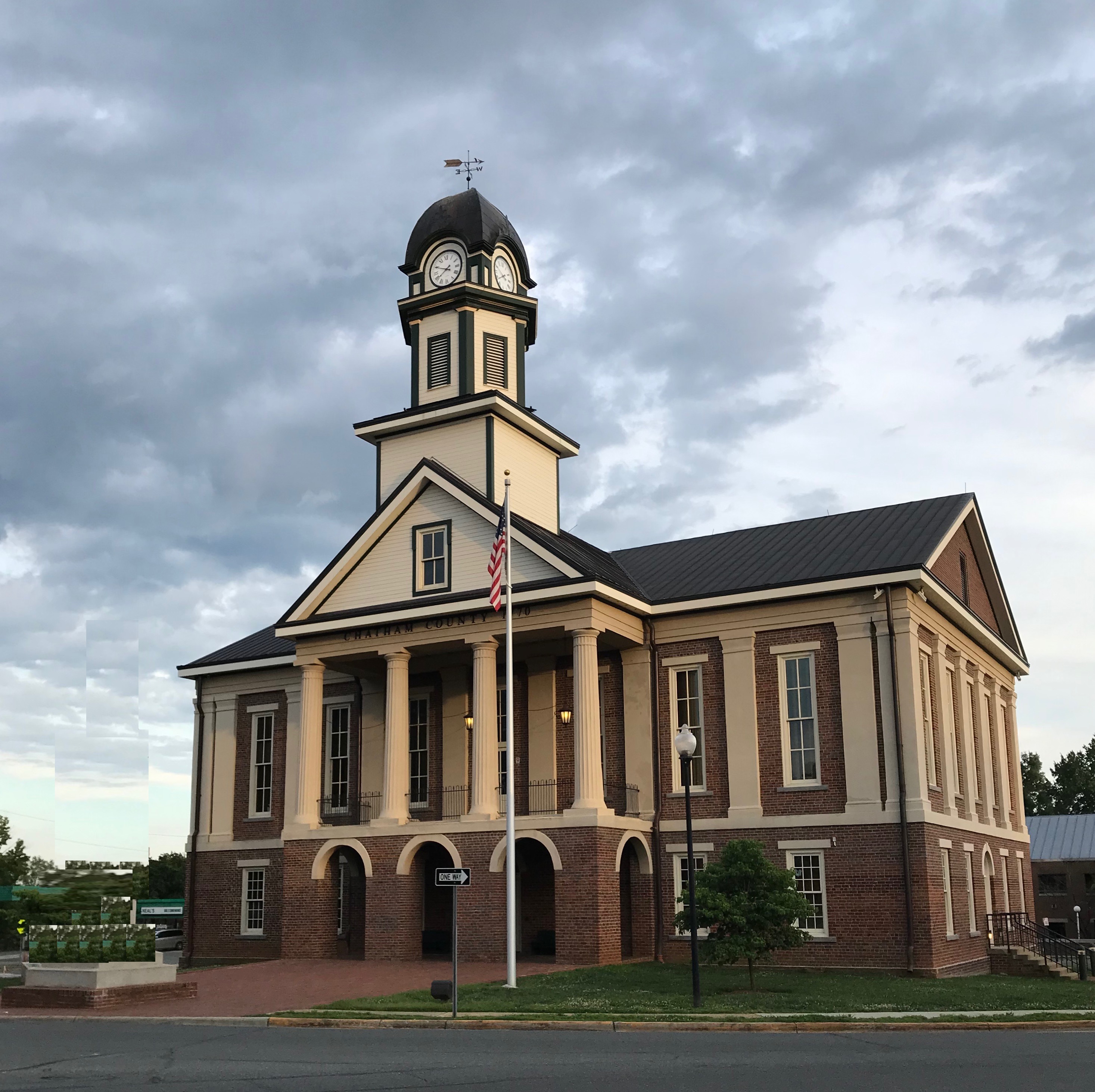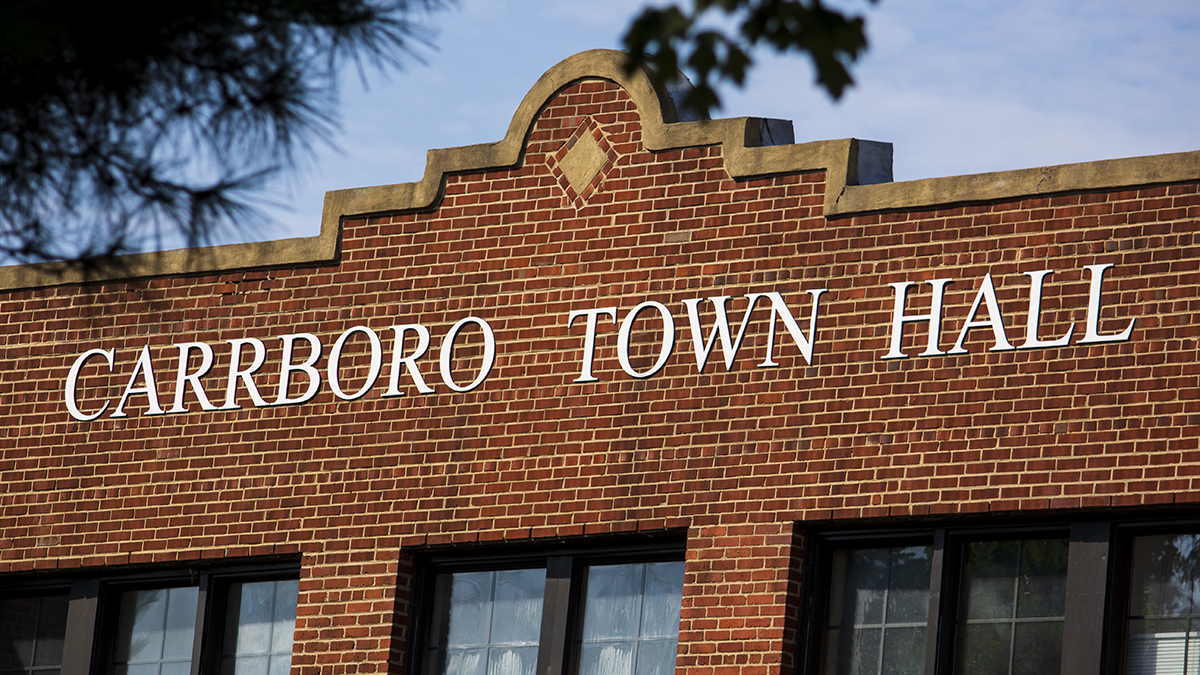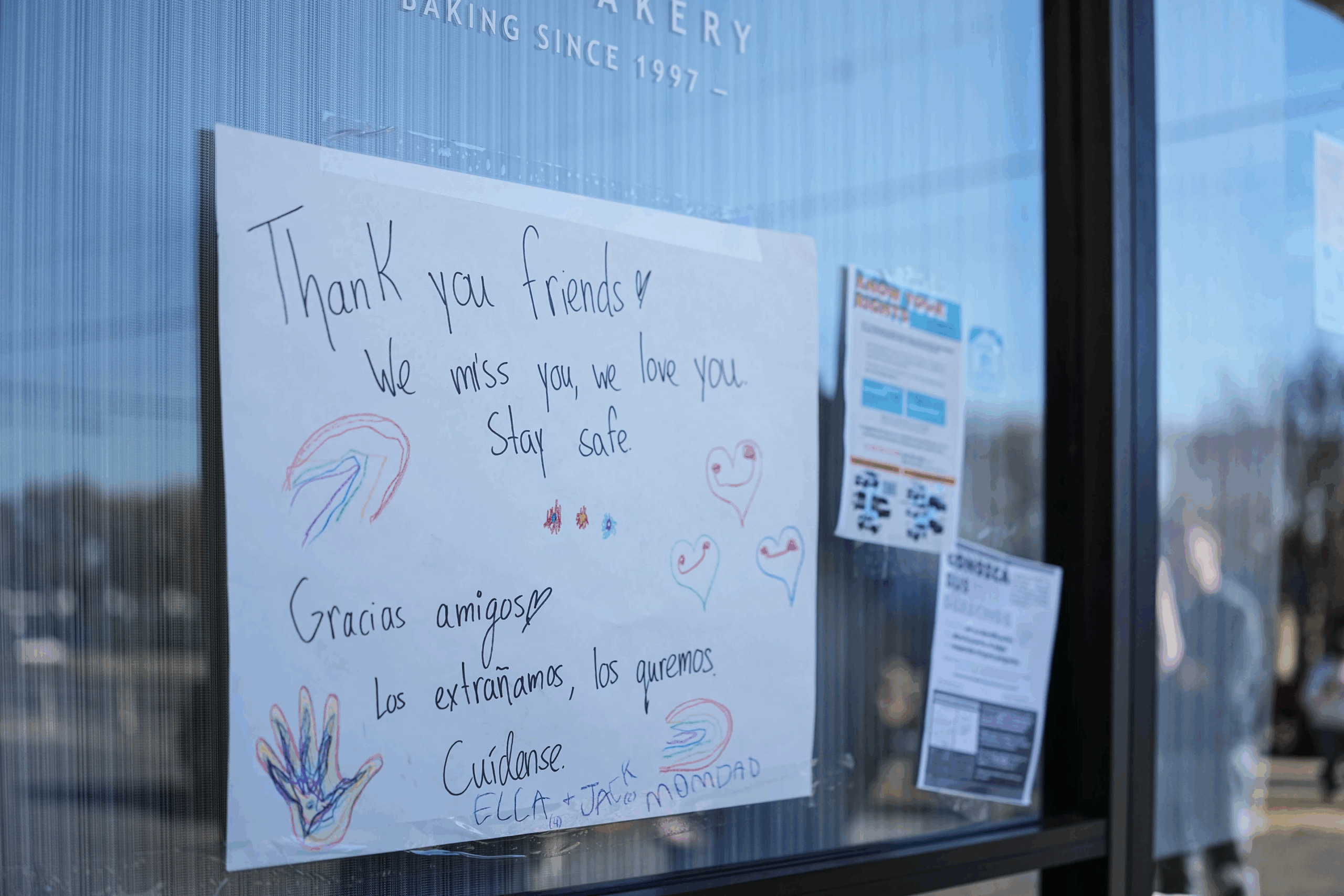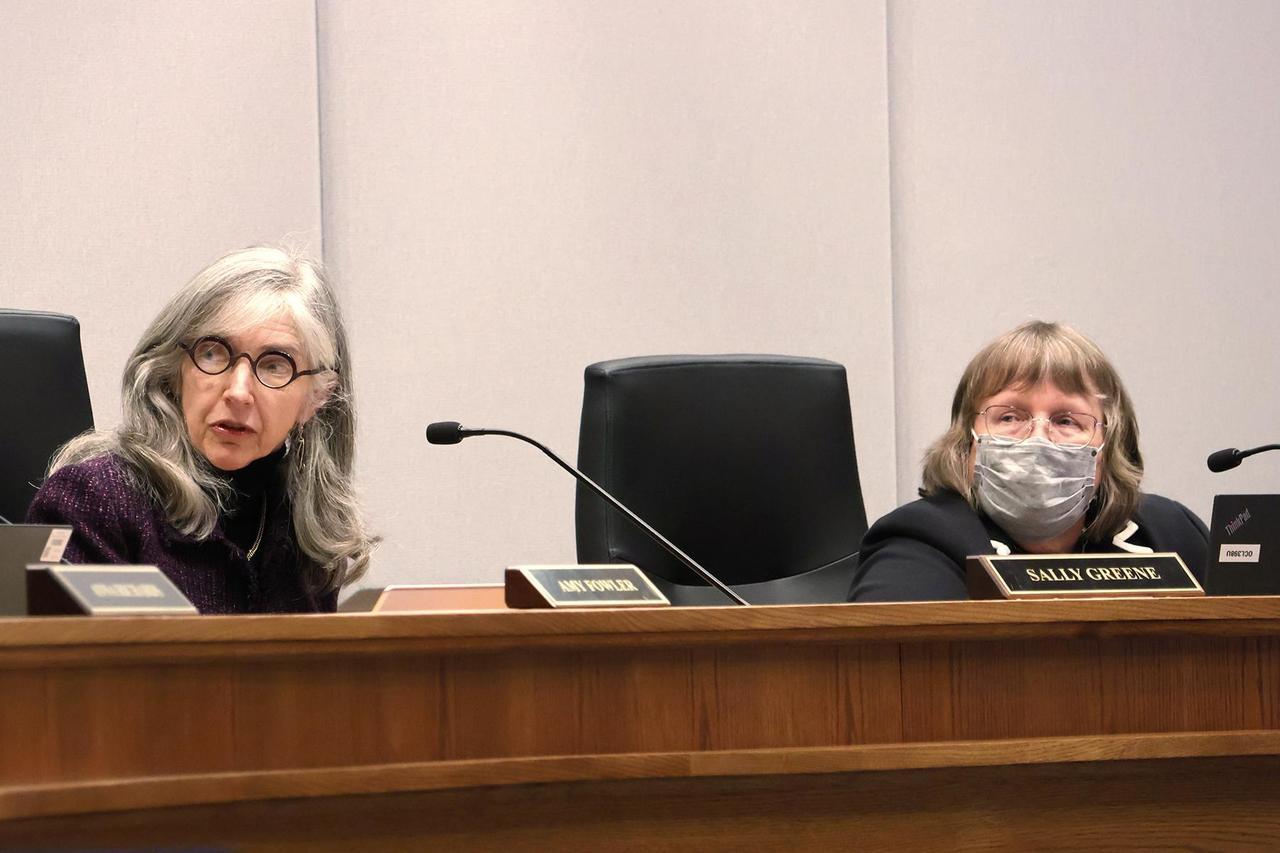The Orange County Commissioners met with the Chapel Hill, Carrboro, and Hillsborough town boards in an Assembly of Governments meeting on Tuesday. The assembly received updates on the One Orange racial equity plan and the plans for a behavioral health diversion facility in the county.
One Orange Racial Equity Plan
In August 2020, the four jurisdictions formed a team to implement the Government Alliance on Race and Equity (GARE) framework with the goal of advancing racial equity. GARE provides networking tools and resources, including training modules, for elected officials to stay current on best practices.
In early 2022, the assembly adopted the One Orange Countywide Racial Equity Framework (One Orange) as a formal commitment by the jurisdictions to “ensure that race no longer can be used to predict life outcomes in the Orange County Community.” Specifically, One Orange aims to uncover and address implicit bias. Carrboro Chief Race and Equity Officer Anita Jones-McNair spoke on the work One Orange is doing in the community.
“What we do know,” said Jones-McNair, “in order for us to advance racial equity, we must train and leverage our resources. We must engage our community stakeholders. We must receive data, track data, collect data. We need to evaluate our policies, practices, procedures, and new initiatives. And we need to include accountability measures”
Jones-McNair explained that in conjunction with GARE’s self-paced racial and equity module, One Orange provides training for all newly hired employees and elected officials in Orange County. She outlined the five steps included in the One Orange framework:
- Training and organizational capacity
- Community engagement
- Collecting and updating data for a racialized data index
- Conducting a racial equity assessment to evaluate the work that is being done through the lens of racial equity
- Providing evaluation and accountability.
Chapel Hill Diversity, Equity and Inclusion Officer Shenekia Weeks presented a racialized data index which was updated in 2023. She explained that the data index serves as a visualization for how various racial groups experience life in Orange County. It measures racial groups’ quality of life across public health, education, economic opportunity, and neighborhood and government services. Weeks discussed why these domains were used for the index.
“This is not an exhaustive list,” said Weeks, “rather a reflection of reliable and accessible community-level data.”
“We realize that this dashboard is certainly an iterative process,” she continued, “and in the next phase slated for the fall we are already in conversations with Carolina Demography, we are gathering your feedback here tonight, and will continue to ask stakeholders how to improve the dashboard.”

Elected officials from the Orange County Board of Commissioners, the Chapel Hill Town Council, the Carrboro Town Council and the Hillsborough Board of Commissioners sit to meet for an Assembly of Governments on January 24, 2024. (Photo via Orange County.)
Behavioral Health Diversion Facility Update
Following a 2019 study on gaps in crisis services in Orange County, the Orange County Board of Commissioners approved a contract for a behavioral health crisis diversion facility in 2022. Last June, the Board of Commissioners authorized the design and construction of the facility in the Capital Investment Plan.
Orange County Deputy Manager Travis Myren spoke on findings of the 2019 Sequential Intercept Mapping study, the catalyst for the behavioral health diversion facility project.
“There were few options for actual diversion,” said Myren. “So, the default destination, typically for someone experiencing a behavioral health crisis, was either the detention center or the emergency department – neither of which is an ideal setting for treating a behavioral health crisis. So, we wanted to provide access to more clinical services.”
“Maybe the most important part of this facility”, he continued, “will be the integrated discharge planning. When someone leaves that facility, there is a warm hand up to a community provider, or providers, depending on the needs that have been assessed, that can help this person live in an outpatient setting, essentially in the community.”
Myren also mentioned the analysis revealed that the facility would provide the opportunity to expand access to medication-assisted treatment (MAT) and peer support.
The facility would operate in the “crisis continuum of care,” meaning that when someone dials 911, there is a clinician in the 911 center to dispatch a mobile crisis team to address the behavioral health crisis if an emergency warrants such a response. The dispatch team would then transport the patient to the behavioral health facility.
According to the county’s plan, the facility will provide behavioral health urgent care to individuals four years or older for 24 hours. It would also provide facility-based crisis services for up to two weeks for adults and a peer living and resource center to support housing, social services, food security, harm reduction, and domestic violence intervention. In total, Orange County estimates 365 behavioral health visits per month including those before, during, and after a crisis.
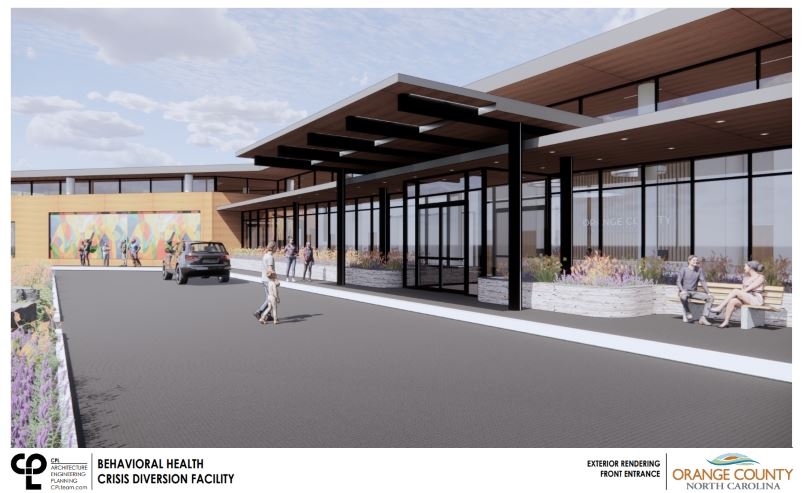
A rendering of Orange County’s future Behavioral Health Crisis Diversion Facility. (Photo via Orange County/CPL.)
When asked by Hillsborough Commissioner Kathleen Ferguson about whether the facility will serve as a central integrated facility for the unhoused population, Myren clarified that while the facility will serve the unhoused, it will not provide long-term care.
Myren also responded to Furgeson’s question about why the county is aiming to have the facility built at its proposed location in Hillsborough, and why that site is not being used for commercial development.
“We’re looking for a site, and this one is close to the UNC Hospital. It’s right next to the UNC Urgent Care. So, it’s ideally situated for this purpose and right off the interstate. So, as to why it’s not commercial, I guess it’s not been purchased by a commercial developer yet.”
Hillsborough Assistant Town Manager/Community Services Director Matt Efird further clarified why the site is not suitable for commercial development.
“In our initial review of this site, it is partially zoned within the Town of Hillsborough’s economic development district,” said Effird. “Part of the property is unzoned. So, as part of the entitlement process, there will be a petition for annexation rezoning. Our high-level review of the site, in terms of suitability for commercial development – there are flood plain constraints and sewer easement constraints that make this an unlikely site for private commercial development in that economic development district. Notwithstanding the board’s decision on the appropriateness of this use, we feel that the county is one of the likely bodies that would be able to use this site for productive use.
Chapel Hill Council Member Amy Ryan asked Myren whether Orange County had approached UNC Health as a potential cost-sharing partner since UNC would serve to benefit from the facility.
In response, Myren said, “They’re aware of the project and aware of the funding needs.” However, Jamezetta Bedford, Chair of the Orange County Board of County Commissioners, followed up on Myren’s comments with reservations about UNC’s involvement. She said that although the two UNC doctors who serve on monthly committee meetings are very supportive of the project, the same cannot be said of the “higher-ups.”
Chapel Hill Town Council Member Pairs Miller-Foushee spoke about her hope for UNC’s participation in the project.
“I really hope the higher-ups understand just how important, what a game-changer this facility will be in our community, especially when we look at mental health and the disparities and access. So just really hope we can encourage them to take a real seat at the table and participate. They’re a really important part of the success, I think, in moving in the direction we want to go.”
To watch the full meeting from January 23, click here.
Chapelboro.com does not charge subscription fees, and you can directly support our efforts in local journalism here. Want more of what you see on Chapelboro? Let us bring free local news and community information to you by signing up for our biweekly newsletter.




